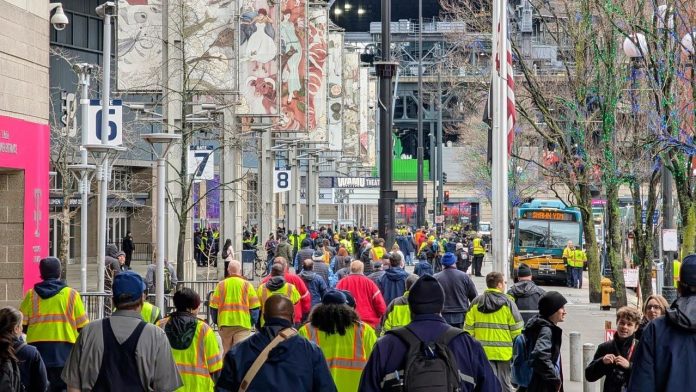
On Friday, thousands of transit workers and supporters gathered in Seattle to mourn the loss of Shawn Yim, a veteran King County Metro bus operator who was killed while working in the University District last month. Amidst touching stories of Yim’s conviviality and generous spirit, friends and union leaders demanded action to improve safety conditions in and around buses and trains.
The memorial was preceded by a procession of more than 100 buses from transit agencies around the region, including some currently retired retro models in a show of solidarity for the loss of one of their own.
Yim’s death followed an argument with a passenger over an open bus window. The passenger pepper-sprayed Yim, and Yim called the cops and followed the assailant onto the street, where the stabbing occurred, according to court documents. That passenger, who stabbed Yim at least ten times, has since been apprehended and faces a murder charge.
The fatal stabbing marked the first death on the job for a King County Metro driver since 1998, when a passenger shot and killed operator Mark McLaughlin while he was driving Route 358. Metro operators, however, warn this tragedy was brewing for quite some time, with increased disorder on buses and transit zones.
Transit union rallies, demand action
The Amalgamated Transit Union (ATU) 587 hosted the memorial at the Lumen Field Events Center, near Metro’s SoDo bases where Yim worked. With more than 4,500 members, ATU 587 is the largest transit union on the West Coast. Across the United States and Canada, ATU boasts more than 200,000 members across 252 locals.
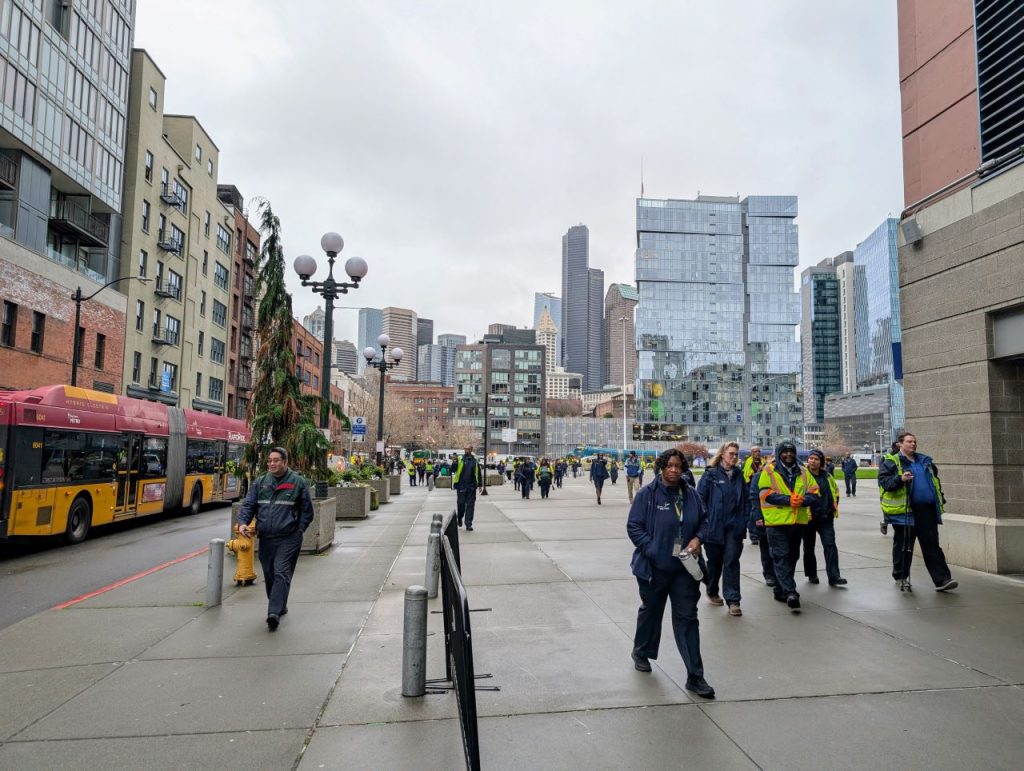
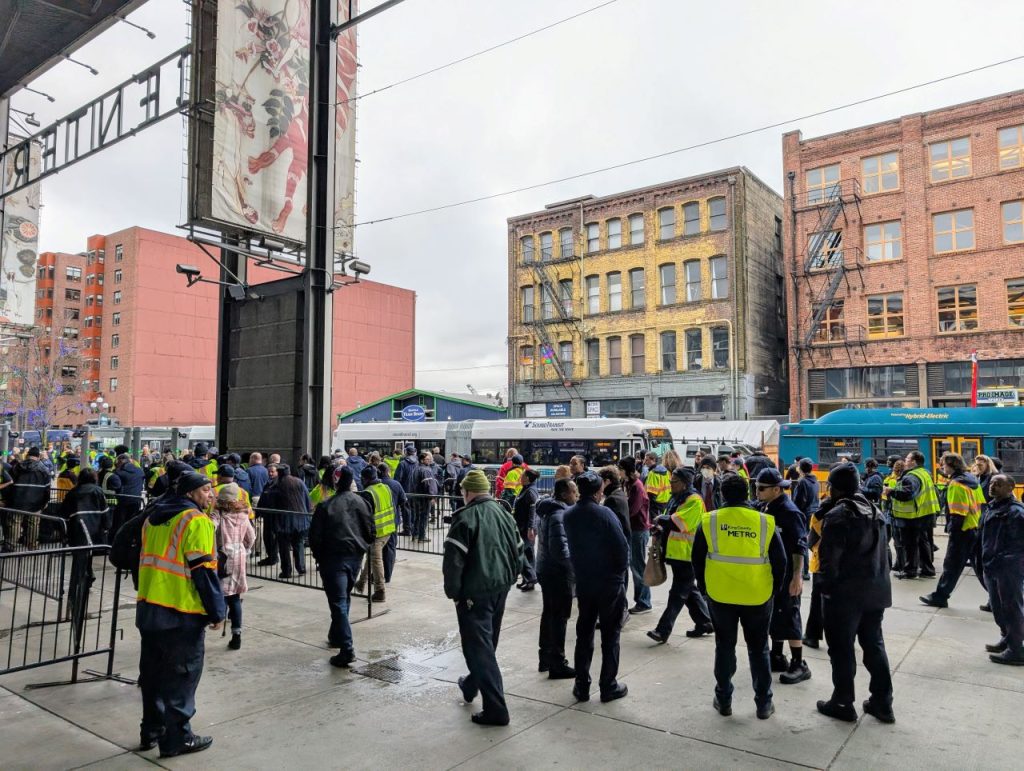


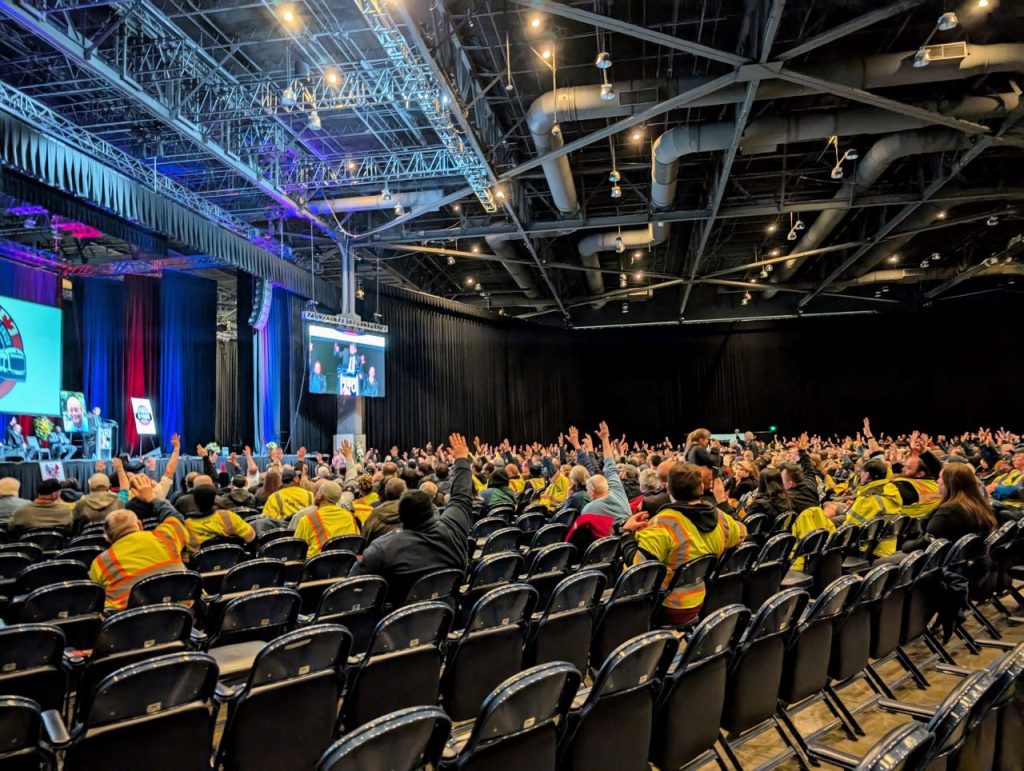

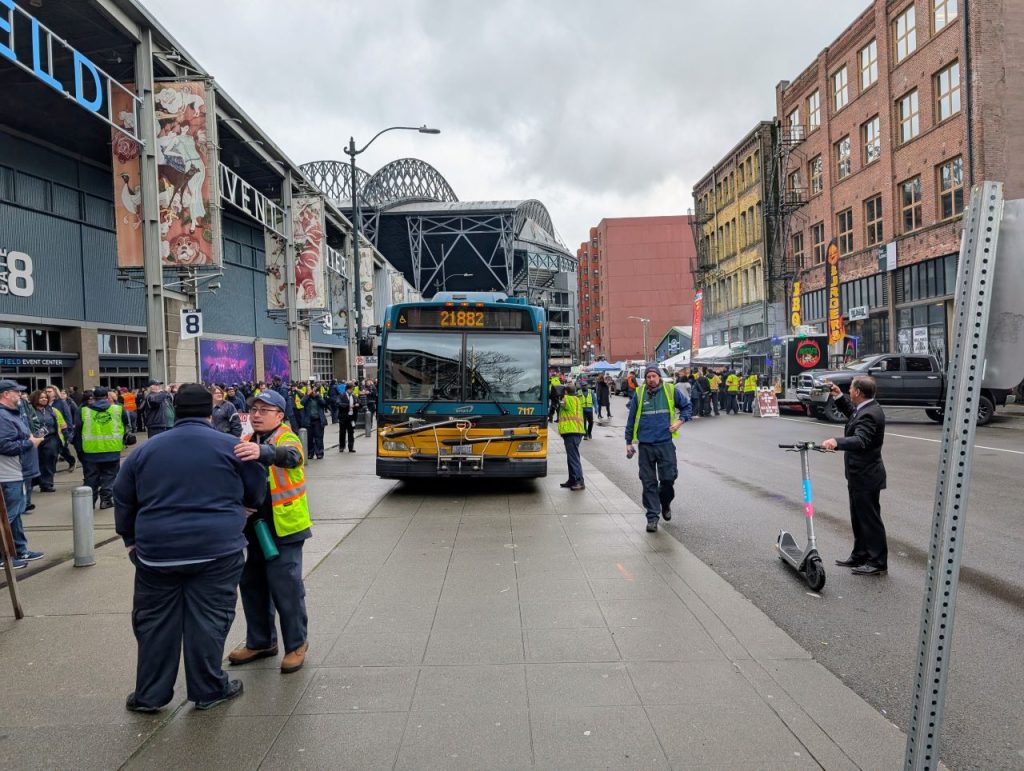
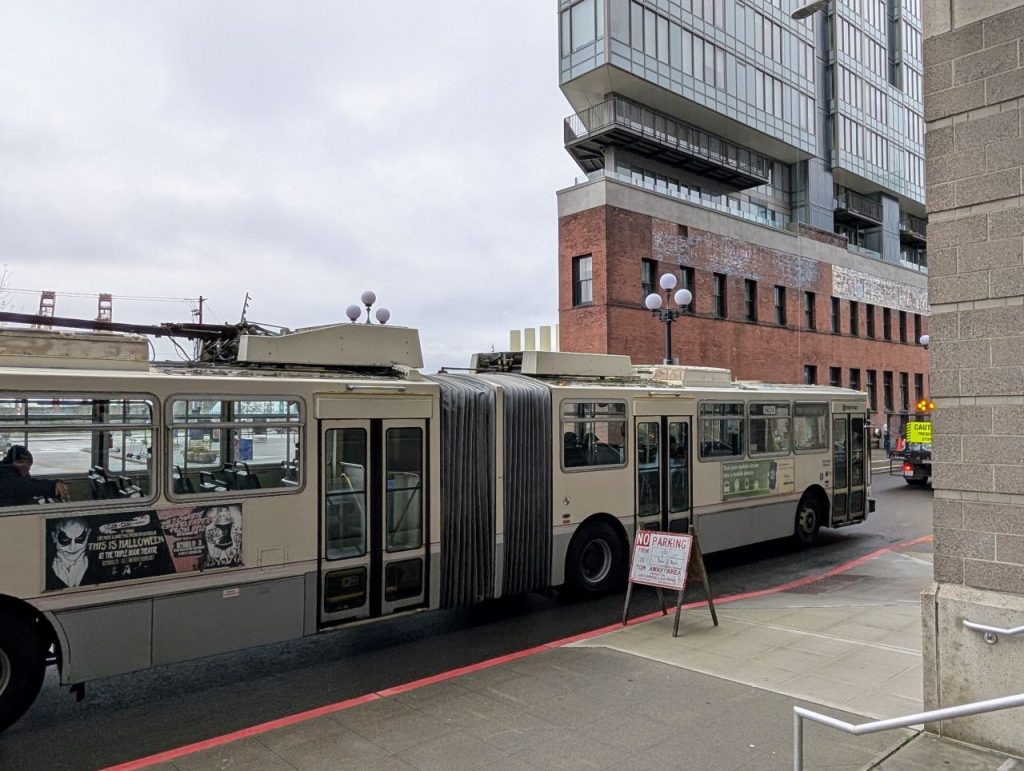
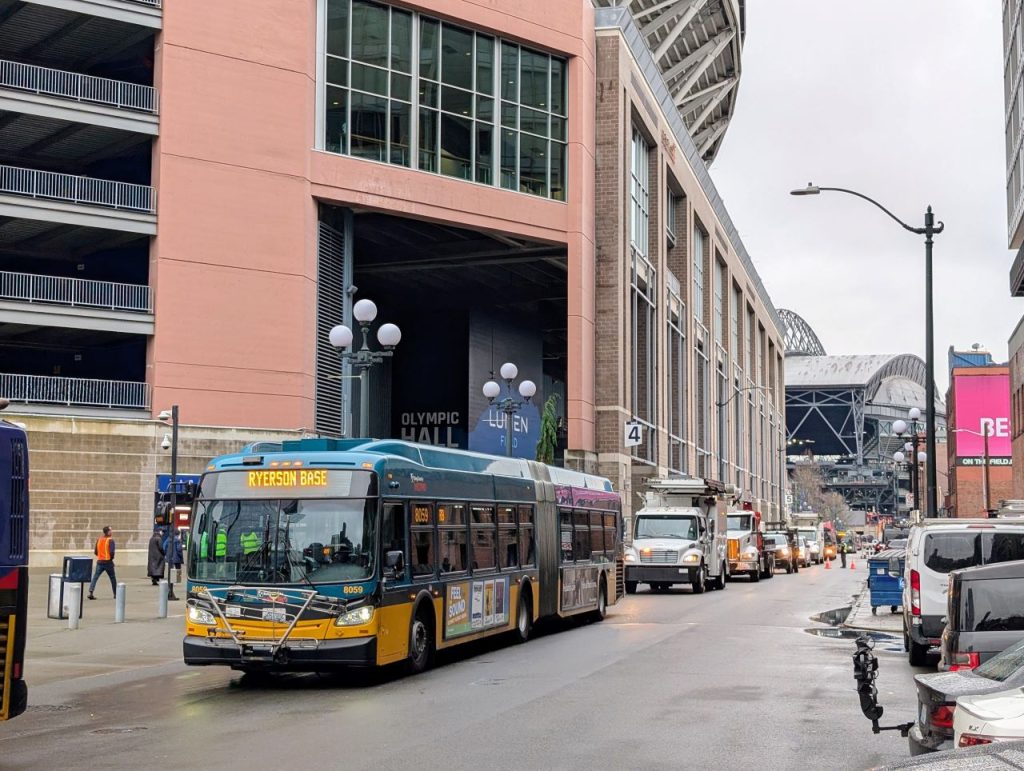
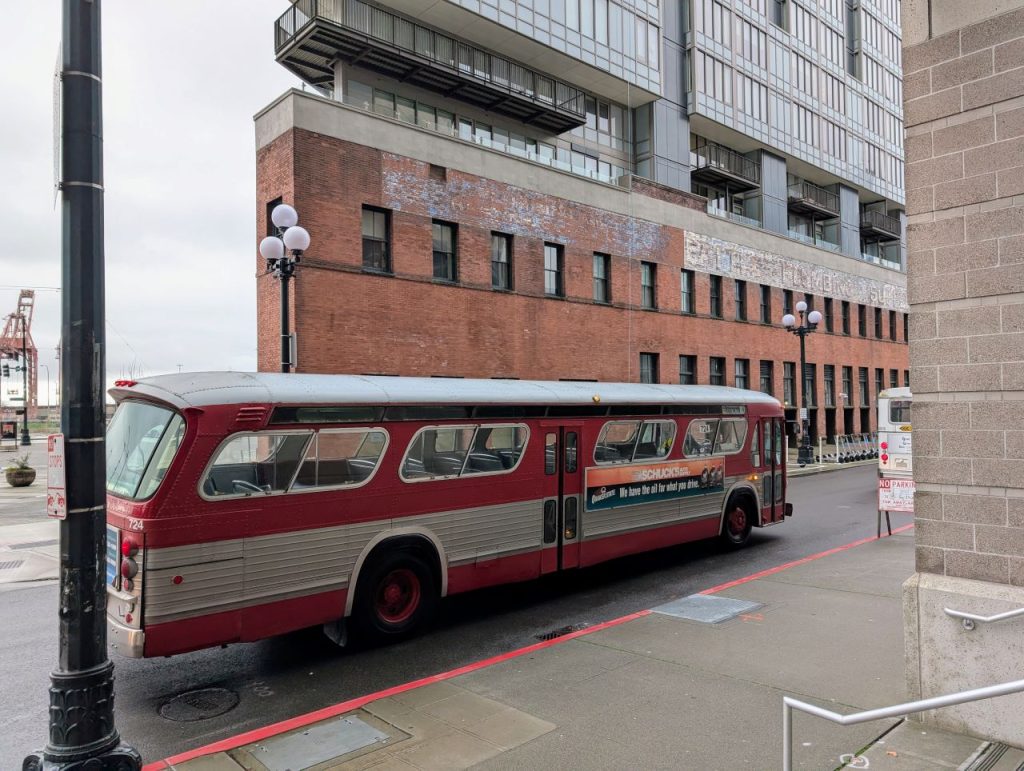
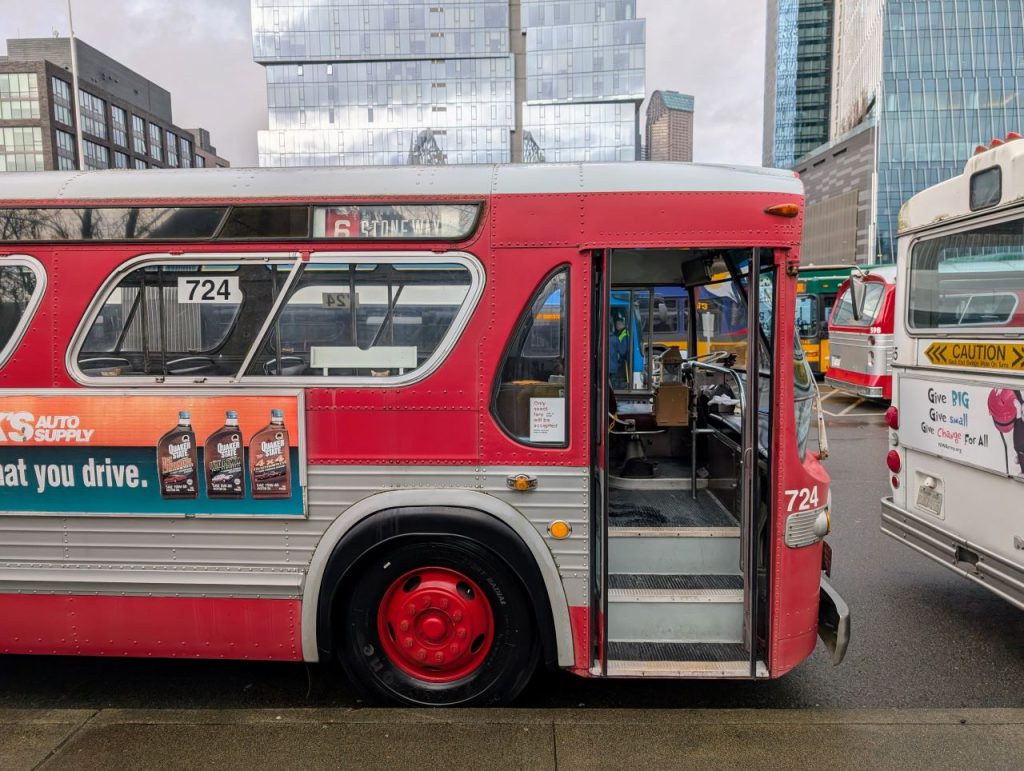
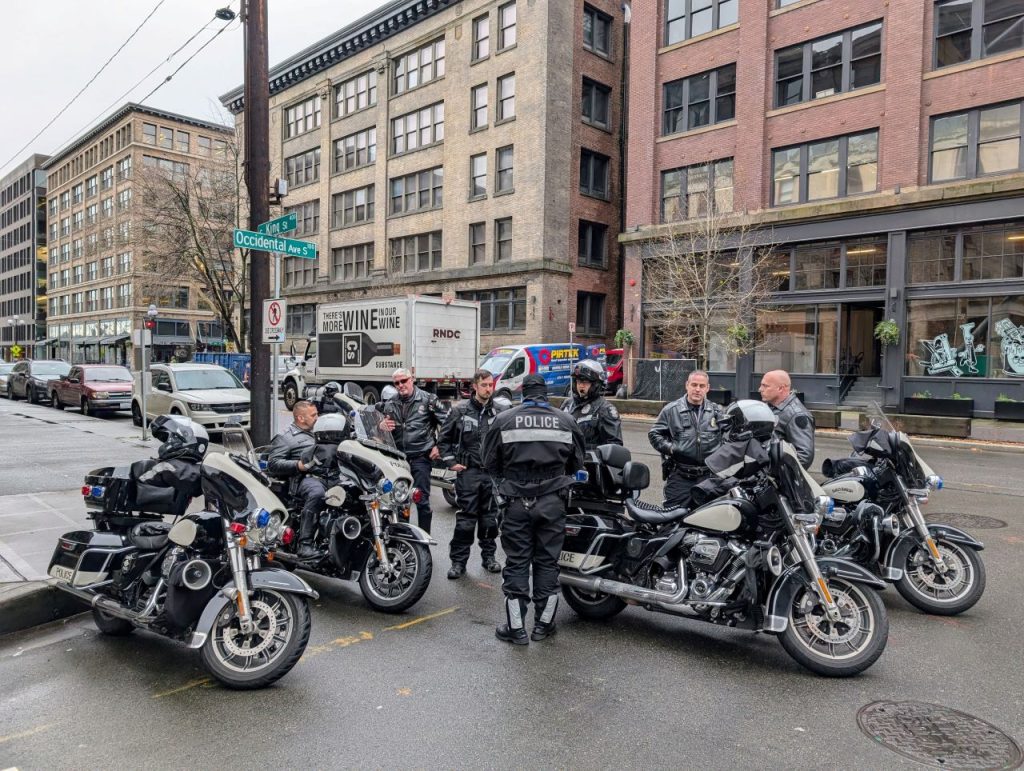
ATU 587 president Greg Woodfill spoke to the indignities and dangers that transit operators face on a daily basis.
“We have a public safety problem, not a transit problem,” Woodfill said. “We see those who can’t afford housing, those who don’t get proper treatment for mental illness or drug and alcohol abuse, those who commit criminal activity. We see these in every city that we serve. Those issues inevitably spilled into our transit system, our members face the threat of assault daily. Far too often, they’re slapped, punched, kicked, spit on, pepper sprayed, and overcome with fentanyl and other drug exposure. They see weapons brandished, and they have their lives threatened.”
Union leaders and members shared their frustrations and feeling of their concerns being ignored.
“Shawn recognized and spoke of how things were getting worse,” Woodfill added. “Tragically, transit workers feel that their cries for help have mostly fell on deaf ears until now.”
ATU International President John Costa also participated in the memorial and, in a fiery speech, urged officials to make it easier to bar troublemakers from riding transit, noting airlines have already gone this route.
King County Council holds transit security summit Monday
On Monday, ATU 587 leaders were at the King County Council for a special meeting of its Committee of the Whole, a meeting Chair Claudia Balducci called to focus on transit safety. Woodfill reiterated that enclosed compartments for operators on buses were their top priority, followed by increased law enforcement presence on the buses.
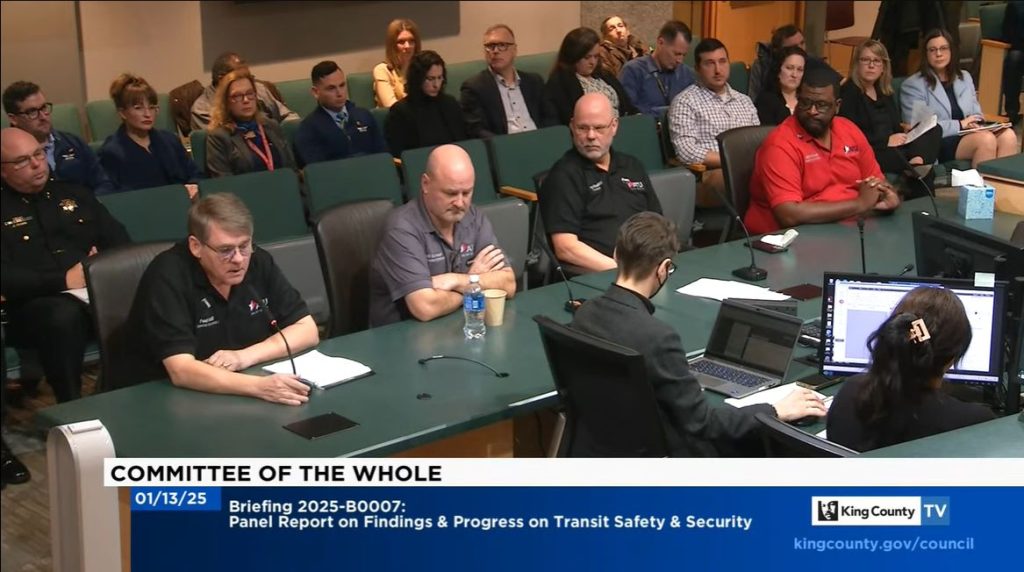
King County Sheriff Patti Cole-Tindall also briefed the county council Monday and warned that the staffing shortage at the sheriff’s department (and many police departments nationwide) would be an obstacle to boosting police presence, at least in the short term. Cole-Tindall said 16 positions are unfilled in the Metro Transit Police Department, which is 82% staffed for its 89 funded positions. The King County Sheriff’s Department report other divisions are seeing similar levels of staffing shortage.
The King County Sherriff’s Department recently increased it lateral hiring bonus from $15,000 to $25,000 to attract more officers — but so too have many peer agencies. The sheriff’s department uses a “enhanced policing” model for Metro, rather than being the primary policing agency. For major crimes, the Metro police defer to the local police department to investigate.
Metro relies on a private security contractor, Securitas, to supplement its sheriff deputies, but several bus operators raised concerns that contracted security officers are ineffective and frequently seen standing around rather than being engaged in resolving incidents around the system. Metro has doubled the number of private “Transit Security Officers” over the last couple of years, reaching 170 positions.
Slow responses to emergency calls has contributed to a sense of apathy and hopelessness among operators, union leaders said. This in turn makes operators less likely to report assaults, Woodfill said. Officially, Metro’s data dashboard reported 12 assaults in 2024, which was trending down after a pandemic spike in security incidents. However, union officials said that data undercounts assaults due to the reticence of operators to report issues. Drivers portray harassment and threats of violence as a daily occurrence.
The county received offers of support from Washington’s federal delegation. The memorial speaking program featured U.S. Representative Pramila Jayapal, who pledged legislative action.
“Shawn would want his death to at least result in ensuring that no other transit worker faces this again,” Jayapal said. “So, let us honor Shawn today by making the promise that we will collectively do our part in making sure that we do what it takes to keep transit workers across King County, indeed, across the nation, safe.”
Beyond new safety features on buses, Jayapal left the call for safety interventions open-ended and ultimately fairly broad.
“So let us use this moment to implement real, meaningful solutions that ensure the safety of transit workers, bus drivers, riders and our entire community,” Jayapal said.
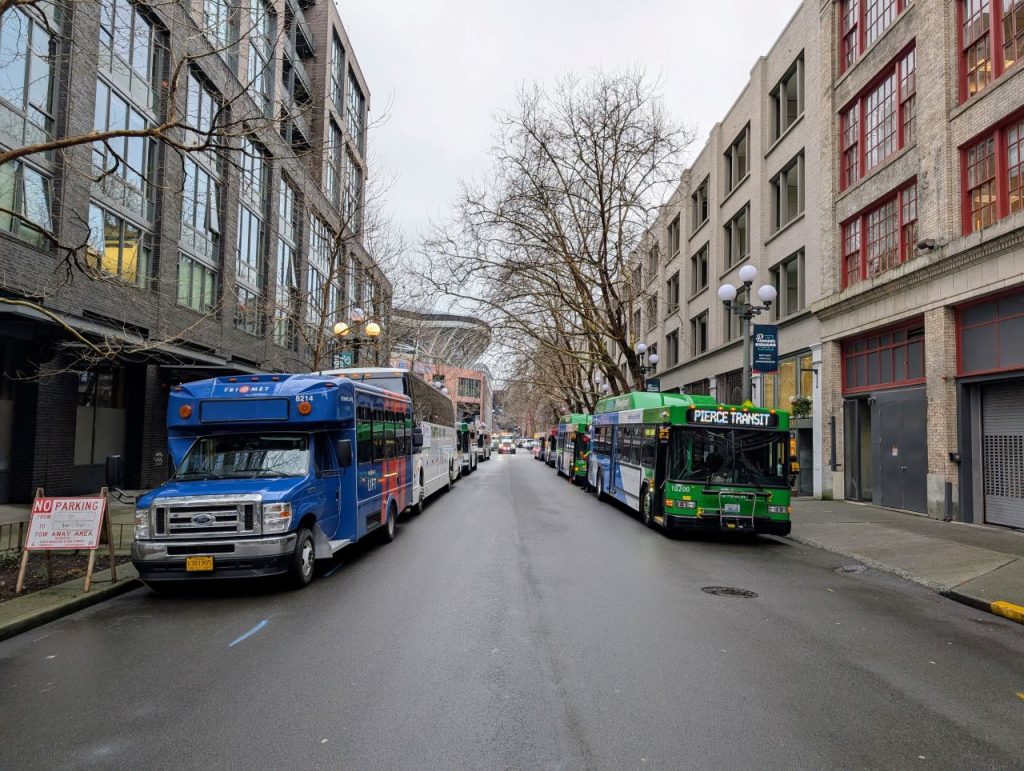
Metro’s response
At the memorial, King County Metro General Manager Michelle Allison expressed her condolences and backing for safety solutions, breaking down in tears as she shared the impact of Yim’s loss.
“First, we are taking immediate action to help keep you safe,” Allison said. “That’s why we’re hiring more police officers and security officers. We’re increasing our physical protection from larger and stronger safety practitioners all the way to separate operating projects. And second, we need broader safety solutions that are far beyond transit. I want to thank for calling a regional task force for public safety and its implications on transit.”
At the King County Council hearing Monday, Allison shared that Metro will soon begin testing two different prototypes of the secure bus driver compartment in order to gauge which design works better for operators. Allison noted Metro had long been studying compartment options, but that each design has tradeoffs.
Allison pledged that Metro would participate in the regional task force that ATU 587 is bringing together to advance broader safety fixes.
“We need to do better”
Transit Riders Union (TRU) general secretary Katie Wilson (who writes occasionally for The Urbanist) offered a rider perspective during the memorial. TRU is a member-run union of transit riders organizing for better public transit in Seattle, King County and beyond.
“I can only imagine how stressful it is trying to drive a bus while also monitoring what is going on behind you,” Wilson said. “Driving a bus while trying to break up a fight or deciding what to do about a passenger who is having a mental health crisis or a passenger who is doing drugs, let alone driving a bus while someone is directing anger at you. You have an incredibly hard job, and I have witnessed so many drivers navigate those challenges with skill, grace, and compassion. So thank you for your service, but also your job should not be this hard. We need to do better.”
Wilson pointed to the need to make transit safer and more attractive in order to meet the workforce and ridership needed to meet regional goals around growth, climate action, and environmental stewardship.
“I love our public transit system,” Wilson said. “I believe that public transit is the future. We can’t keep adding cars too. We have to keep expanding transit. We must encourage more people to become transit operators and mechanics, and we must invite more people onto transit as riders. But for that to work, public transit jobs have to be good jobs, and that means they have to be safe jobs. And our transit system has to be safe, comfortable and accessible for riders too. We need to do better.”
Doug Trumm is publisher of The Urbanist. An Urbanist writer since 2015, he dreams of pedestrian streets, bus lanes, and a mass-timber building spree to end our housing crisis. He graduated from the Evans School of Public Policy and Governance at the University of Washington in 2019. He lives in Seattle's Fremont neighborhood and loves to explore the city by foot and by bike.

